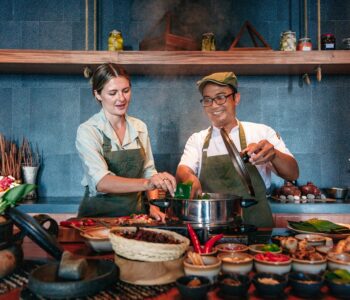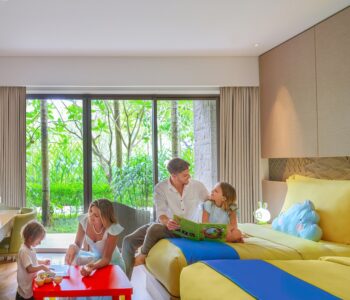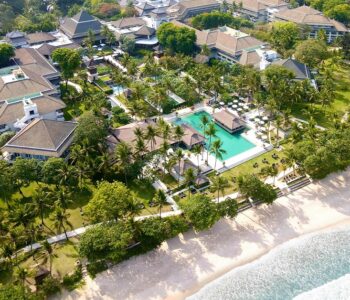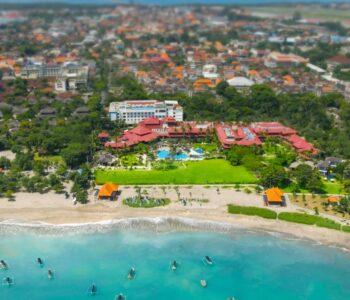A new barter scheme conceived by an Ubud restaurateur is helping a village in Tabanan stay afloat amidst the pandemic. Trading trash for food, or ‘Plastic for Rice’, is an effort to reduce waste problems in villages, whilst keeping families in need nourished and healthy.
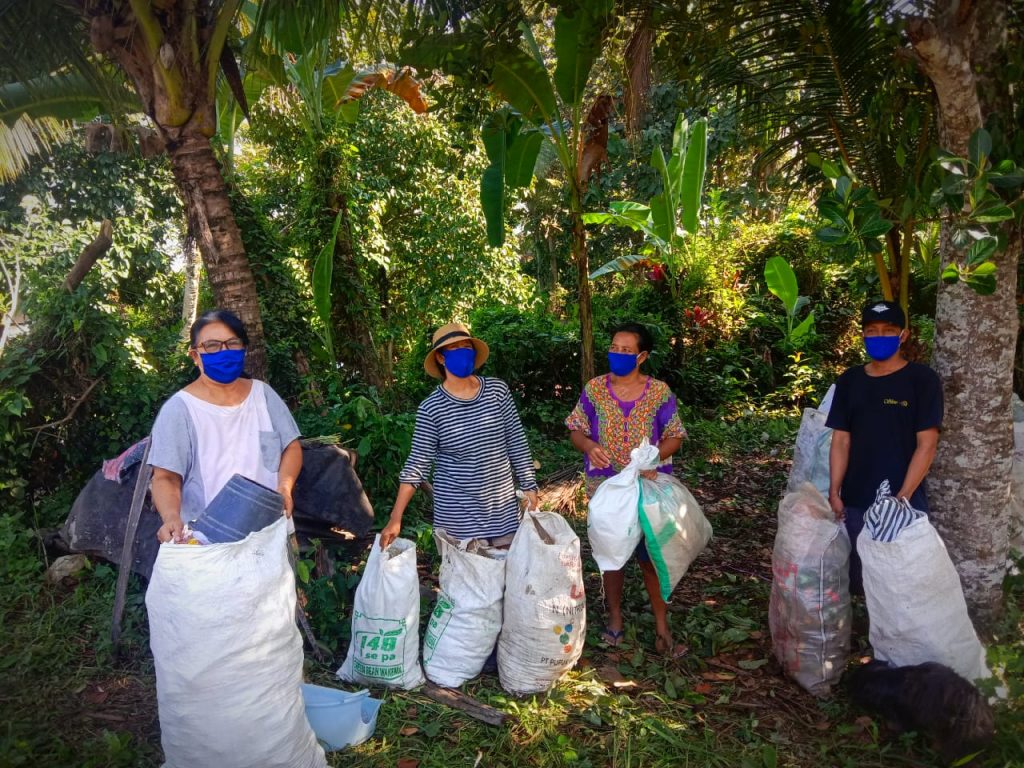
In the midst of every crisis, lies great opportunity. When this conjured to mind, I Made Janur Yasa turned his long obsession of plastic-free living into a passion for helping others. ‘Plastic For Rice’ encourages people in villages to collect plastic in their homes and public places within the village, such as water canals, paddy fields, wherever, in exchange for rice or cooking oil. The initiative, or incentive, hopes to create a new habit of preserving a clean environment whilst encouraging residents to learn by doing.
Fundamentally functioning as a self-sufficient restaurant, Janur ensures Moksa Ubud’s daily operations are consciously run. Nurturing an on-site permaculture garden to wholly embrace a farm-to-table concept is one example. From self-running water filters to ‘kitchen-to-garden’ compost systems, the ins and outs of Moksa are made to flow sustainably.
Going forward with his day-to-day eco-consciousness, and emotively strong dislike of plastic, the Tabanan-native thought of his village during these challenging times and created the initiative to lend a helping hand. Something had reminded him of the golden days of barter back in the day, trading rice for sea salt from farmers who lived on the coast. This drives the spirit to help people without getting too familiar with the idea of having ‘easy access’.
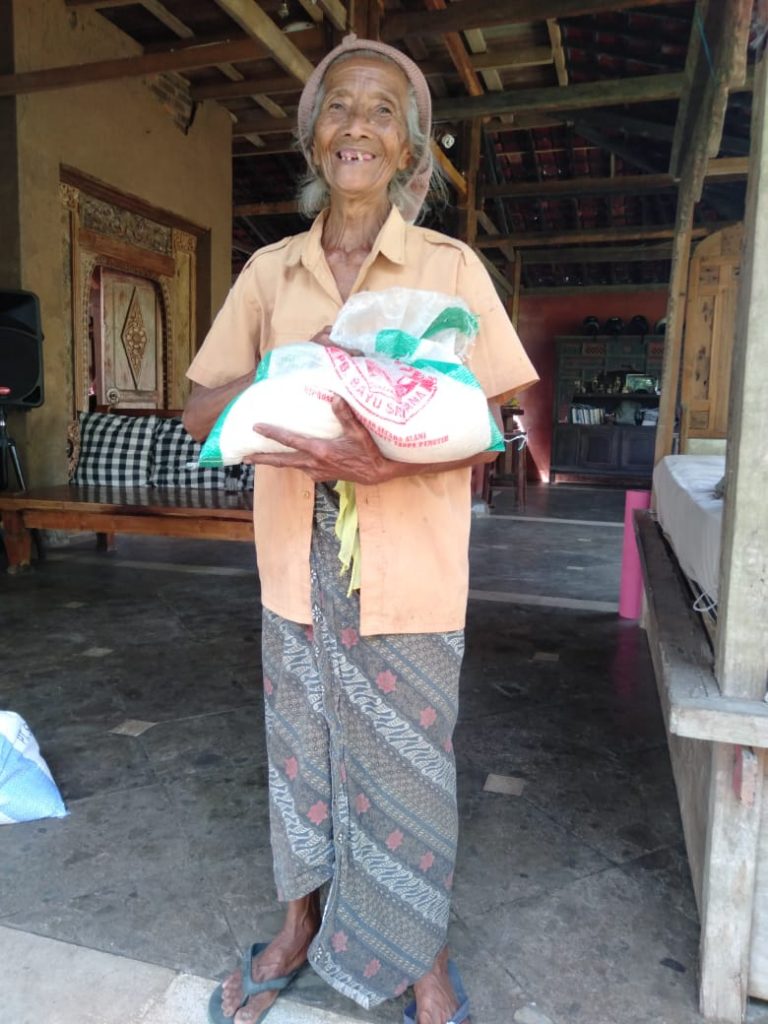
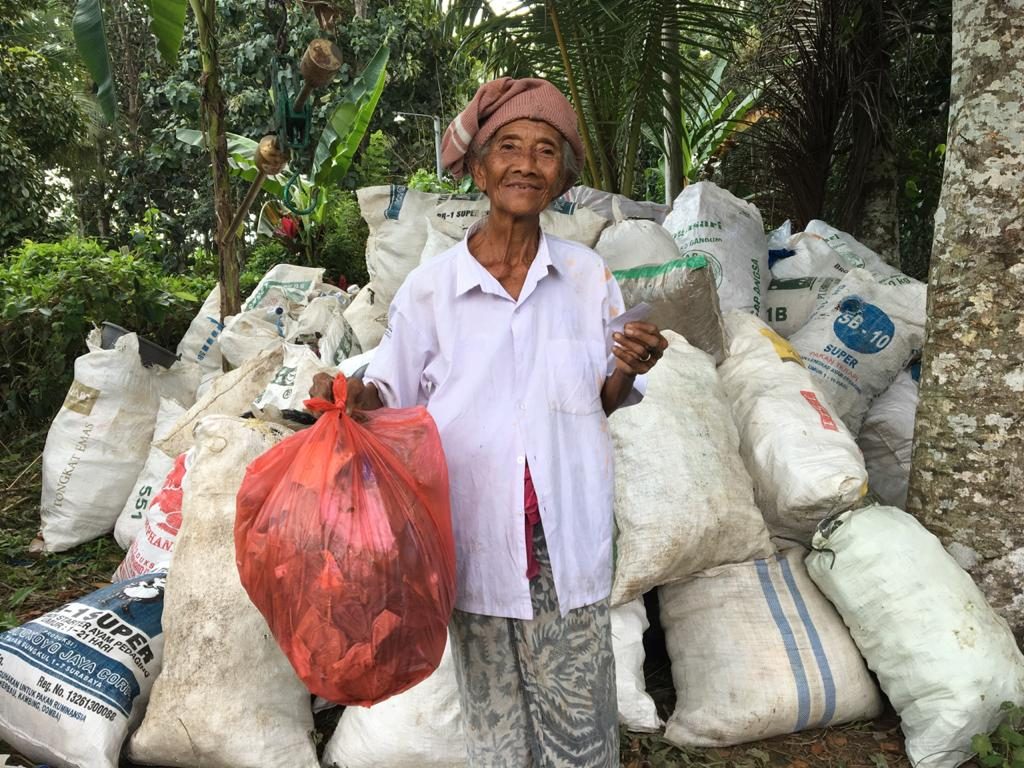
Plastic For Rice started on the early days of May, around three months after the Coronavirus swept the world, leaving a distressing impact for those less fortunate. With enthusiastic reception from residents, those living in Banjar Jangkahan and Banjar Penulisan, Batuaji Village, Tabanan have been collecting plastic waste for sustenance ever since.
The idea is simple but carries a deeper weight. The system in Batuaji stands as a prototype for other villages to follow. The goal is, yes, to feed and educate. The Tabanan village has a youth team assembled from the get go to raise awareness about plastic pollution and assist with waste separation. But essentially, the initiative aims to pin down a feasible model to alleviate waste issues in villages, done in smaller scales, hopefully higher numbers, and easy enough to replicate.
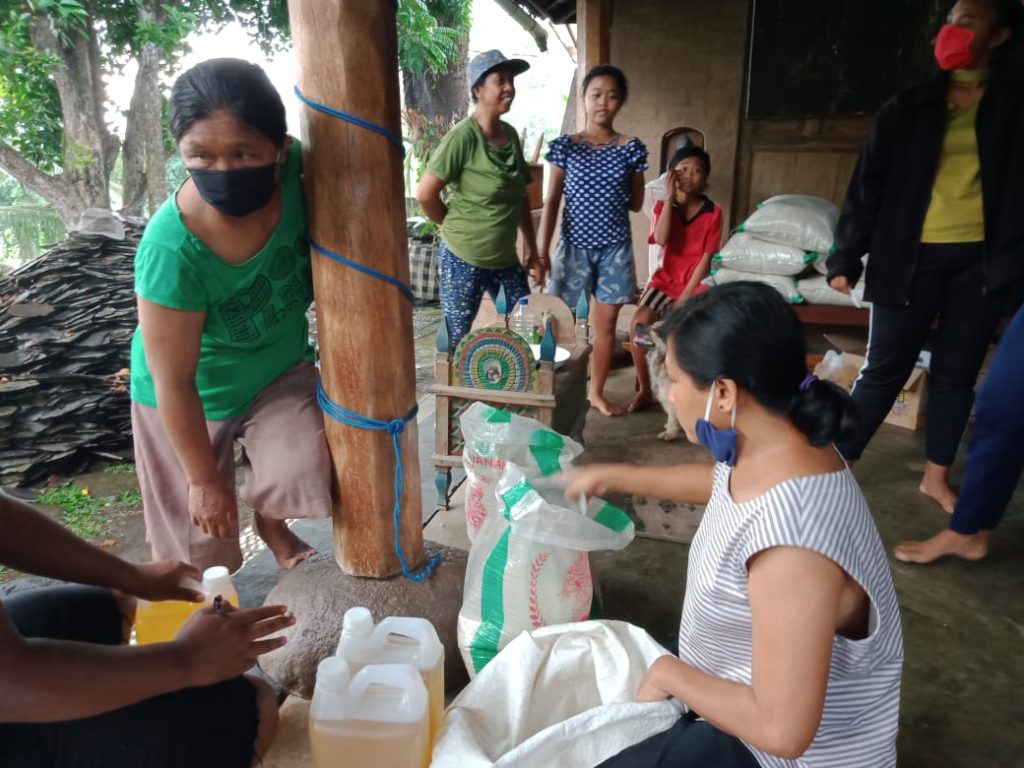
The majority of existing waste banks strictly accept plastic waste that are ‘valuable’. Plastic packaging, straws, and other plastic waste with no economic value are left astray, swarming our oceans and rivers. Plastic For Rice works uniquely in that department.
Janur implemented a point-based system to bridge fair transactions. No plastic is discriminated based on value, but instead divided into the different ‘qualities’. The first quality covers small, dry plastic such as candy wrappers, straws, and sachets, usually deemed more pesky to collect (1 kg = 1 point). Then comes the small, soiled often damp and weightier plastic, such as dirty food bags (2kg = 1 point). Quality number three accepts plastic bottles, cups, and the likes (3kg = 1 point). The fourth category are for bigger items, such as buckets, jugs, PVC, or plastic ladles (4kg = 1 point). The team has created a blueprint for other villages to copy, but this point based system in particular can vary.
As of 3 May 2020, Janur has collected 1,6 tonnes of plastic waste from one village in Tabanan. With such positive response from the villagers, Sayan and Penestanan will be the first to follow suit, introducing the barter system in Ubud. The initiative has been echoed in the south coast, where he will be helping an expat set up the scheme in a local village in Pecatu, and another in Pejeng, Gianyar.
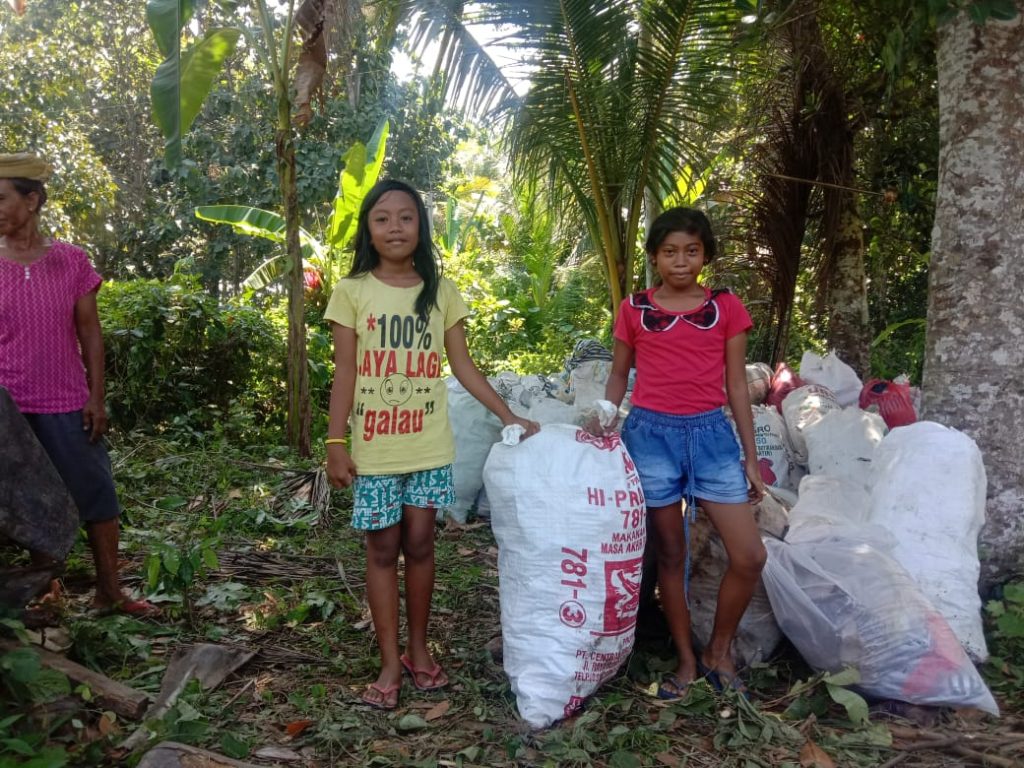
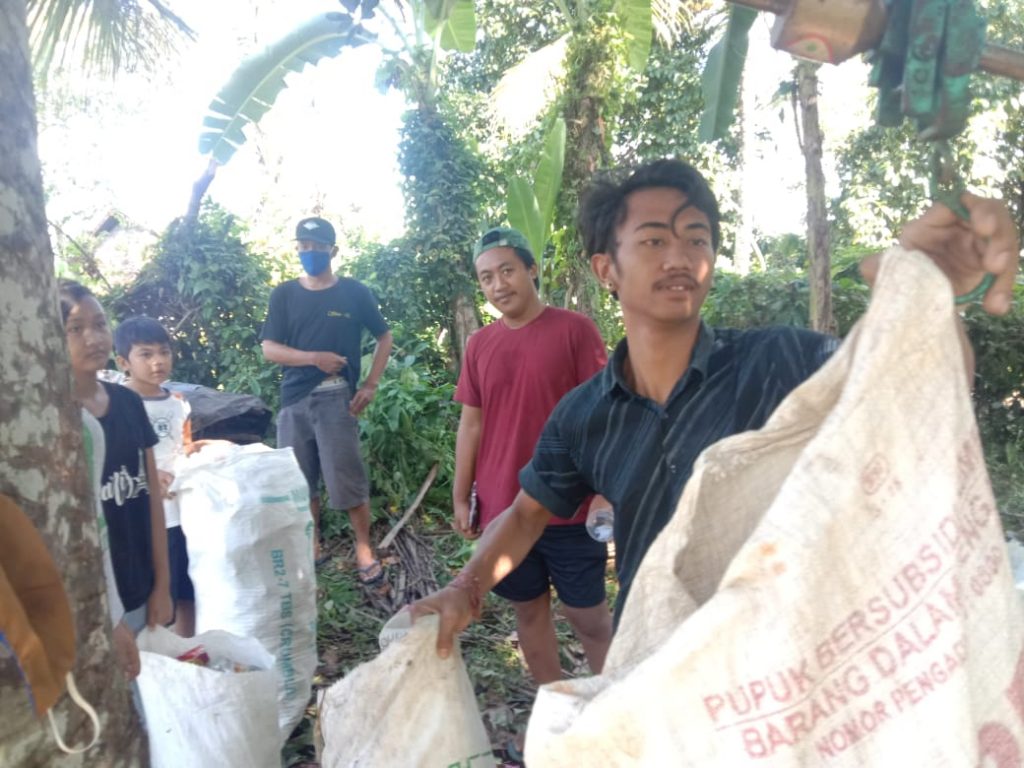
How to help: Spread the word, share the initiative, and inspire others to follow. Janur Yasa is available to help you set up the model in your local area. Not Bali based? You can help by donating to the initiative.
Please contact Janur Yasa +62 821 4591 7884 or casadeyasa@gmail.com for further information.


